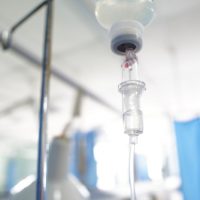 Total Parenteral Nutrition (TPN) is a life-saving medical therapy that provides essential nutrition directly into the bloodstream for individuals who are unable to consume food orally or digest it properly. This therapy plays a vital role in the healthcare field, especially for patients with severe gastrointestinal disorders, malnutrition, or those undergoing surgical procedures. Understanding the science behind TPN and how its components are formulated for patient-specific needs is crucial in delivering optimal care and promoting recovery.
Total Parenteral Nutrition (TPN) is a life-saving medical therapy that provides essential nutrition directly into the bloodstream for individuals who are unable to consume food orally or digest it properly. This therapy plays a vital role in the healthcare field, especially for patients with severe gastrointestinal disorders, malnutrition, or those undergoing surgical procedures. Understanding the science behind TPN and how its components are formulated for patient-specific needs is crucial in delivering optimal care and promoting recovery.
1. Introduction to Total Parenteral Nutrition:
Total Parenteral Nutrition involves the administration of a specialized liquid solution containing a balanced combination of macronutrients, micronutrients, and electrolytes directly into the bloodstream via a central intravenous line. While oral or enteral nutrition is the preferred method whenever feasible, TPN acts as a lifeline for patients whose gastrointestinal tract cannot adequately absorb or tolerate essential nutrients.
2. Macronutrients in TPN:
Macronutrients, comprising carbohydrates, proteins, and fats, are the primary sources of energy and building blocks of the body. In TPN formulations, these macronutrients are tailored to meet the specific needs of the patient. Carbohydrates, in the form of dextrose, provide energy and prevent the breakdown of muscle tissue. Proteins, typically in the form of amino acids, are essential for tissue repair and synthesis. Fats, in the form of lipids, supply essential fatty acids and provide a concentrated energy source.
3. Micronutrients in TPN:
In addition to macronutrients, TPN formulations also consist of essential micronutrients that play key roles in various biological processes. These include vitamins, minerals, and trace elements. Vitamins, such as vitamin C and B-complex vitamins, are crucial for cellular metabolism, growth, and immune function. Minerals like calcium, phosphorus, and magnesium are necessary for bone health, muscle function, and electrolyte balance. Additionally, trace elements like zinc, copper, and manganese are important for enzymatic reactions, wound healing, and antioxidant defense.
4. Electrolytes in TPN:
Electrolytes are vital for maintaining cellular function and fluid balance within the body. TPN formulations contain electrolytes such as sodium, potassium, and chloride in specific concentrations tailored to the patient’s needs. Sodium and chloride help maintain fluid balance and nerve transmission, while potassium is crucial for heart and muscle function. Other electrolytes, such as calcium, magnesium, and phosphate, are also included to support bone health, enzyme activity, and various cellular processes.
5. Formulating TPN for Patient-Specific Needs:
Formulating TPN solutions is a complex process that requires precise calculations and consideration of individual patient characteristics. Before initiating TPN therapy, a patient’s nutritional needs are assessed based on factors such as age, weight, medical conditions, and metabolic status. This information helps create a personalized TPN formulation that meets the patient’s energy requirements, provides the necessary macronutrients, micronutrients, and electrolytes, and addresses any specific nutritional deficiencies.
6. TPN Complications and Monitoring:
While TPN is a highly effective therapy, it is not without risks. Complications such as infections, metabolic imbalances, liver dysfunction, and catheter-related issues can occur. Close monitoring of the patient’s clinical status and regular blood tests are essential to identify any potential complications and make necessary adjustments to the TPN formulation.
Summary
Total Parenteral Nutrition is a critical therapy that provides essential nutrients directly into the bloodstream for patients with impaired digestive systems. Through the balanced formulation of macronutrients, micronutrients, and electrolytes, TPN helps meet the specific nutritional needs of each individual. By understanding the science behind TPN and tailoring formulations to patient-specific requirements, healthcare professionals can optimize care and support patients in their recovery journeys.

